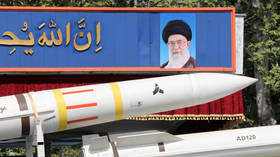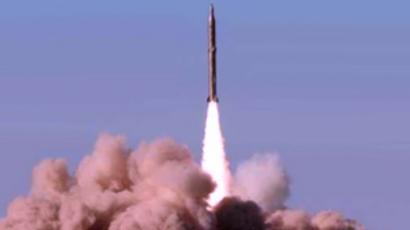Russia-US roadblocks reset
Diplomats past and present gathered at the United Nations on Monday in honor of what would have been the 100th birthday of Cold War politician Andrey Gromyko.
Discussions, however, focused much more on the here and now – in particular the nuclear arms-reduction proposals agreed upon during U.S. President Barack Obama's recent visit to Moscow, as well as the obstacles that remain in U.S.-Russian relations.
Minor technicalities were a problem, but the group was far from lost in translation.
“Of course, we do have a fall back option,” said Vitaly Churkin, the Russian ambassador to the UN.
At a gathering at the UN marking the anniversary of the birth of Gromyko, the Soviet Union’s foreign minister for nearly 30 years, post-Cold War realities took center stage.
While Russia and the U.S. have agreed at a recent summit in Moscow to cut their nuclear stockpiles, serious obstacles remain, namely America’s proposed missile defense shield in Eastern Europe and NATO’s eastward expansion. Both are moves that Russia strongly opposes.
“Bases near the Russian border, they undermine Russian security because they make the American capabilities even more dangerous to Russia,” explained Anatoly Gromyko, Andrey Gromyko’s son.
But it’s not just Russians who think the U.S. plan for an anti-ballistic missile shield is a terrible idea.
“The solution to the missile defense controversy is very simple: don’t build it,” said Stephen Cohen, a professor of Russian studies at New York University. “It’s a system that won’t work, against an enemy that doesn’t exist, and with a Congress that will not fund it.”
Some analysts say that the new American president simply can’t afford to make loud statements on the missile defense plans for fear he will lose political face. In any case, there is a chance that he might just quietly abandon the idea.
“We are not going to have a real binding agreement or statement, but by silence, the American government is not going to push forward either NATO expansion or the deployment of an anti-missile defense system in the Czech Republic and Poland,” said Andranik Migranyan, head of the Institute for Democracy and Cooperation.
Henry Kissinger, a former U.S. secretary of state and national security advisor under Nixon and a man of vast diplomatic experience, has always been supportive of a practical and weighed approach toward U.S. ties with Russia.
Kissinger told RT that talks will eventually help find an outcome.
“I believe that, as our dialogue continues, we will find a solution to the problem,” he said.
While the first steps toward resetting relations between Russia and the U.S. have been made in Moscow, the U.S. abandoning its missile defense ambitions would be the next step in a warming of ties and help open a new chapter in Russian-U.S. history. Whether this will happen, however, remains to be seen.













